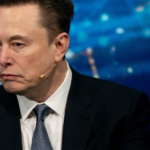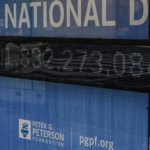On Thursday, after announcing strong first-quarter earnings results, Amazon CEO Andy Jassy concurred. The tariffs, he suggested, would give Chinese sellers a little recognized advantage on his service because of the complex supply chain of U.S.-based merchants.
“Retailers who aren’t buying directly from China are typically buying from companies who themselves are buying from China, marking these items up, rebranding and selling to U.S. consumers,” Jassy told analysts on a call following the earnings release. “These retailers are buying the product at a higher price than Chinese sellers selling directly to U.S. consumers in our marketplace. So, the total tariff will be higher for these retailers than for China direct sellers.”
Jassy also stressed another point that’s obvious to Amazon’s 2 million independent sellers: The advantage of the depth and breadth of Amazon’s marketplace. If one seller falters because of higher tariffs, another will likely fill in the gap.
When tariffs rise, many sellers pass their extra costs on to consumers through higher prices. But some sellers, including those in different countries, will consider it an opportunity and eat the cost in an effort to attract new customers. “I think when you’ve got larger diversity like we have, we have a better chance of some of those sellers deciding that they’re going to capture [market] share, and they’re not going to pass on all or any of those tariffs to customers,” Jassy said.
Beyond Amazon’s marketplace, Jassy on Thursday made a point to call out his company’s strength in the grocery space—not perishable foods specifically—but “consumables” or consumer packaged goods. Those products range from soap and shampoo to boxed mac and cheese or soup.
“Even if you exclude Whole Foods Market and Amazon Fresh, Amazon is one of the largest grocers in the U.S. with over $100 billion in gross sales last year,” he said.
The point? Those products are largely produced in countries other than China and therefore not necessarily subject to steep tariffs.
Last month, I wrote that, “yes, if an economic downturn causes U.S. consumers to pull back on discretionary spending, that may crimp Amazon’s sales growth and marketers may advertise less on the site. Yes, Amazon may have to raise prices on some of the inventory it carries itself … But as the dominant online retailer in the U.S., with one of the stickiest membership programs ever created, customers who shop online will continue to turn to Amazon. Amazon should be just fine.”
And on Thursday, despite a financial forecast for the current quarter that disappointed some analysts, Jassy aimed to persuade Wall Street that Amazon should be just fine. And that’s bad news for many of its competitors.









